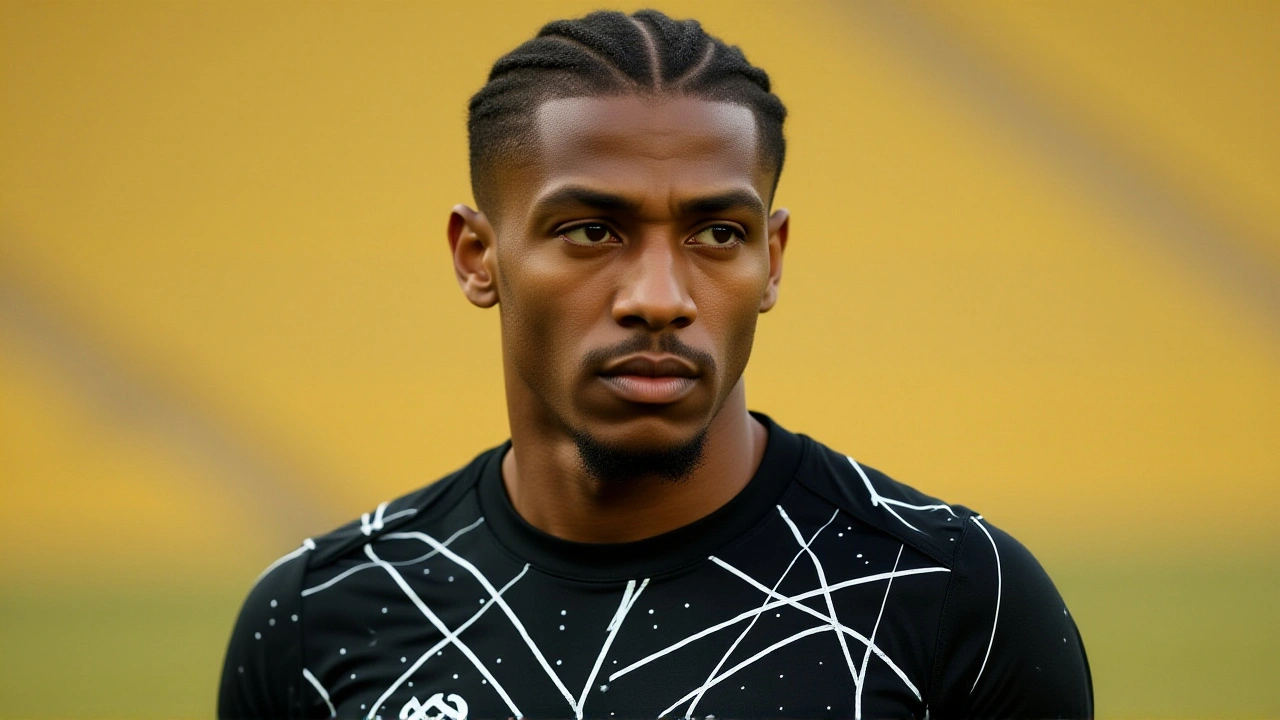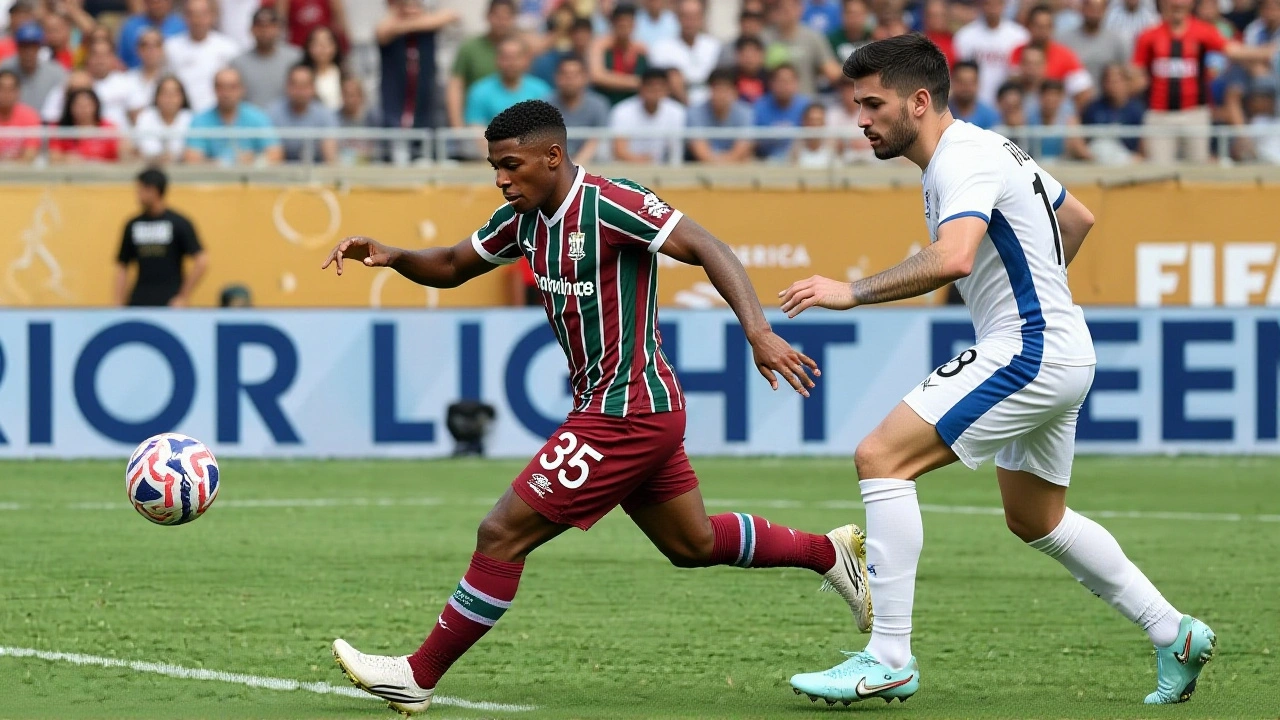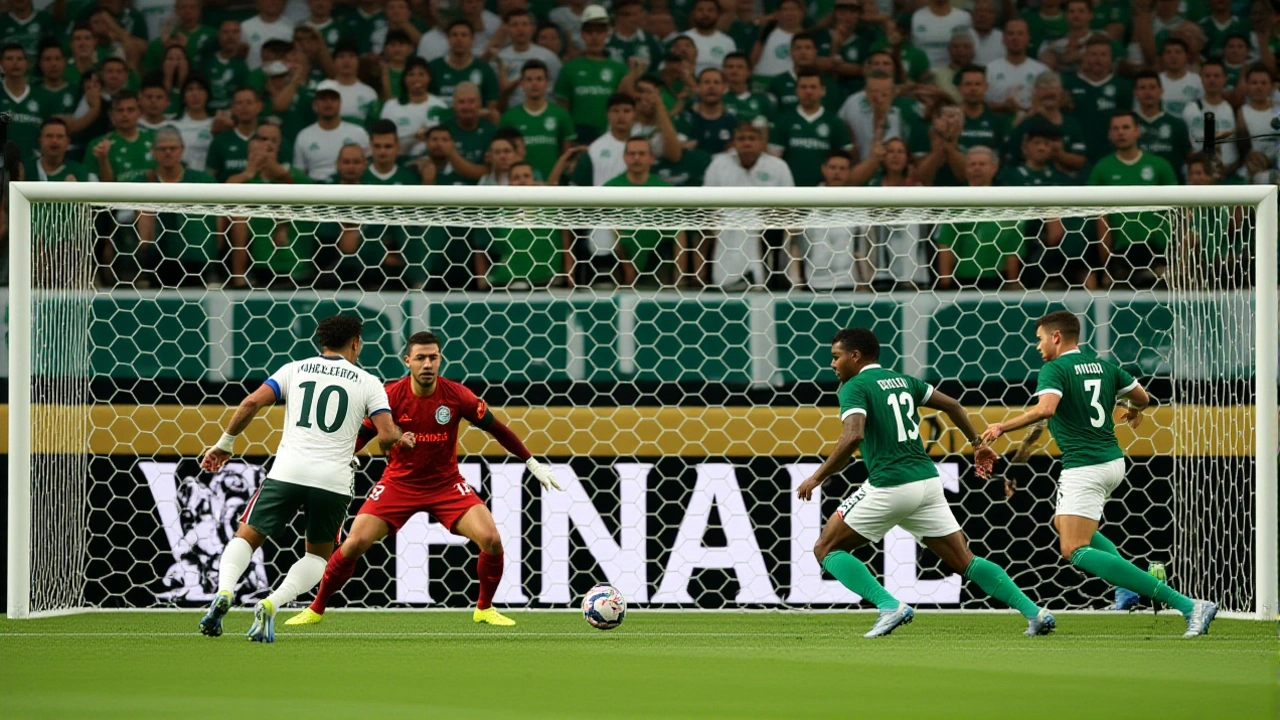On a sweltering July evening in East Rutherford, New Jersey, Chelsea FC stunned their former academy product and sent Fluminense Football Club packing with a 2-0 win in the FIFA Club World Cup 2025 semifinal. The match, played at the packed MetLife Stadium, wasn’t just about advancing to the final—it was personal. Enter João Pedro, the 23-year-old Brazilian forward who once wore Fluminense’s stripes, now scoring both goals in his first competitive start for Chelsea since his £60 million move from Brighton & Hove Albion FC. His double, at 18 and 56 minutes, didn’t just win the game—it broke hearts.
A Debut That Defined a Night
João Pedro’s first touch in a Chelsea shirt was electric. By the 18th minute, he’d already made history. Picking up a threaded pass from Enzo Fernández, he cut inside from the left, left Lucca Viana da Silva Oliveira grasping at air, and curled a left-footed shot past Fabio de Souza. The crowd, split between blue and red-and-white, fell silent. Then erupted. For Fluminense fans, it was gut-wrenching. Pedro had come through their youth system. He’d scored for them in the Brazilian Serie A. Now, he was dismantling them on the biggest stage.The second goal was even crueler. A turnover in midfield, a quick counter, and Pedro again—this time finishing low after a brilliant dummy from Cole Palmer. The Brazilian’s celebration was muted. No shirt removal. No corner flag dive. Just a nod toward the stands, eyes fixed on the Fluminense section. According to FIFA.com, it was "a performance that fired Chelsea to the final and broke the hearts of his former club."
The VAR Controversy That Changed the Game
Fluminense didn’t go down without a fight. In the 32nd minute, Trevor Chalobah appeared to handle the ball during a left-wing free-kick. The referee pointed to the spot. The Fluminense bench exploded. Then came the VAR review. After a 90-second wait, the call was overturned. Officials ruled Chalobah’s arm was in a "natural position"—a decision that left Fluminense players furious, with captain Hercules Alves de Araujo screaming at the fourth official. Sky Sports’ match reporter noted the players were "visibly shaken," with some refusing to return to the center circle.That moment might’ve been the turning point. Moments later, Fluminense came within inches of equalizing. Hercules unleashed a thunderous drive that beat Robert Sánchez—only for Marc Cucurella to dive and clear it off the line. The stadium gasped. Chelsea held on. That clearance, more than any tackle, preserved their lead.

Money, Momentum, and the Road to the Final
Chelsea’s victory wasn’t just about glory—it came with a staggering financial windfall. The club pocketed an additional £22 million for reaching the final, on top of the £60 million they’d already earned for making the semifinals. Win the final on July 13, and they’ll add another £29 million. That’s £111 million in prize money alone for a tournament that began in June.The final, set for Sunday, July 13, at the same MetLife Stadium, will pit Chelsea against either Real Madrid CF or Paris Saint-Germain FC. Both are giants. But Chelsea, once considered underdogs in this tournament, now carry momentum few expected. Their midfield—led by Fernández and Caicedo—controlled the tempo. Their defense, anchored by 39-year-old Thiago Silva, held firm under pressure.

Who’s Next? The Final’s Stakes
If Chelsea face Real Madrid, it’s a rematch of the 2022 UEFA Champions League final—where Madrid edged them 1-0. A PSG clash would be a different beast: a French powerhouse hungry to reclaim continental dominance. Either way, João Pedro will be the focal point. His goals have turned him from a pricey gamble into a fan favorite in under 90 minutes.For Fluminense, the loss stings. They played with heart, with hunger. But in football, sometimes the past comes back to haunt you. And for Pedro, this wasn’t just a debut—it was a statement. He didn’t just score two goals. He announced his arrival on the global stage… and reminded everyone where he came from.
Frequently Asked Questions
Why was João Pedro’s debut so significant?
João Pedro’s goals came in his first competitive start for Chelsea after a £60 million transfer from Brighton, but more than that—he scored against his former club, Fluminense, where he began his professional career. Scoring twice on debut against your old team on a global stage like the Club World Cup is rare, making this one of the most emotionally charged debuts in recent memory.
What was the impact of the VAR decision on the match?
The overturned penalty call against Trevor Chalobah was a major turning point. Fluminense believed they had a clear handball, and the decision left them demoralized. Without that goal, they might have gained momentum. Instead, Chelsea held firm, and the controversy became a talking point that overshadowed much of Fluminense’s otherwise strong performance.
How much prize money did Chelsea earn from this match?
Chelsea earned £22 million for reaching the final, adding to the £60 million they received just for making the semifinals. That’s £82 million already secured. A win in the final on July 13 would bring them another £29 million, totaling £111 million in tournament prize money—making this one of the most lucrative runs in club history.
Who are Chelsea’s potential opponents in the final?
Chelsea will face either Real Madrid CF or Paris Saint-Germain FC. Real Madrid defeated Al Ahly in the other semifinal, while PSG beat Al Hilal. Both are elite European clubs with histories of winning global titles, making either matchup a true test of Chelsea’s emerging dominance.
Where can fans watch the final?
The final on July 13, 2025, will be broadcast globally for free on DAZN, as were all matches in the tournament. Tickets are available through FIFA’s official website, with demand expected to be extremely high given the venue’s 82,500 capacity and the star power involved.
Did any players stand out beyond João Pedro?
Yes. Enzo Fernández orchestrated play with 92% pass accuracy and created both goal opportunities. Marc Cucurella’s goal-line clearance was arguably the defining defensive moment of the match. And Thiago Silva, at 39, played 90 minutes with composure and leadership, showing why he’s still among the world’s best center-backs.



Yogesh Popere
November 25, 2025 AT 09:01Joao Pedro didn't just score two goals-he erased a decade of loyalty in 90 minutes. Fluminense gave him his start and he repaid them with a dagger to the chest. Cold.
Manoj Rao
November 27, 2025 AT 08:19Let’s be real-the VAR decision wasn’t just about Chalobah’s arm… it was a cosmic alignment. The football gods had already ordained Pedro’s vengeance. The universe doesn’t forgive betrayal, and neither does the 18th minute. This wasn’t sport-it was karmic retribution wrapped in a £60M contract.
Alok Kumar Sharma
November 29, 2025 AT 06:13Fluminense fans are crying. Pedro’s silent nod? Brutal. That’s not celebration-that’s a funeral.
Tanya Bhargav
December 1, 2025 AT 02:59I don't care who scored, but Thiago Silva playing 90 minutes at 39 is just insane. How is he still moving like that? I need to start drinking more water and sleeping more. Also, Marc Cucurella’s clearance? Pure instinct. That’s the kind of moment that wins titles.
Sanket Sonar
December 2, 2025 AT 05:24Chelsea’s midfield control was textbook. Fernández at 92% pass accuracy? That’s not just good-that’s operational excellence. And Pedro? He’s the perfect example of a transfer that justifies its market value. No fluff. Just output.
pravin s
December 4, 2025 AT 03:06Man, I didn’t think Chelsea could pull this off. But Pedro? He’s got that quiet fire. Like he knew this was his moment and he wasn’t gonna waste it. Respect.
Bharat Mewada
December 4, 2025 AT 03:25There’s something tragic about a boy returning to his roots only to break them. Pedro didn’t just score-he became a symbol. The game isn’t about clubs or money. It’s about identity. And tonight, identity was torn apart and stitched back together in blue.
Bhavesh Makwana
December 4, 2025 AT 09:35Chelsea didn’t just win-they announced themselves. That £111 million? It’s not just cash. It’s proof that investment, patience, and elite talent can turn a rebuilding project into a global force. This is the future. And it’s blue.
Vidushi Wahal
December 6, 2025 AT 02:37I watched the second goal three times. That dummy from Palmer… it was poetry. Pedro didn’t celebrate because he knew what it meant. Not just for him-but for the kid who used to kick a ball in Rio’s streets. He carried them with him.
Narinder K
December 6, 2025 AT 22:37So Fluminense spent millions developing him… and Chelsea bought him for less than the price of a Tesla? Who’s the real genius here?
Narayana Murthy Dasara
December 7, 2025 AT 11:56Everyone’s focused on Pedro, but let’s not forget how calm Enzo was out there. He didn’t need to show off-he just moved the ball like he was conducting a symphony. And Thiago Silva? He’s not aging. He’s upgrading. This team’s got soul.
lakshmi shyam
December 8, 2025 AT 19:21Fluminense were amateurs. They didn’t even press properly. Pedro was left open too many times. This wasn’t a shock-it was a failure. And the VAR call? Total joke. Referees are paid to make calls, not to overthink.
Sabir Malik
December 9, 2025 AT 10:41I’ve been watching football since the 90s, and I’ve never seen a debut like this. Not just because of the goals-but because of the silence afterward. No fireworks. No flexing. Just a man who knew what he’d done, and what he’d left behind. That’s the kind of maturity you can’t coach. It’s carved into your bones. Fluminense gave him his first shirt. Chelsea gave him his first legacy. And now? He’s got the world watching. That’s not just talent. That’s destiny.
Debsmita Santra
December 11, 2025 AT 05:39The defensive structure was immaculate. Silva’s positioning, Cucurella’s recovery speed, the way the fullbacks tucked in during transitions-it was a masterclass in modern high-line defense. And Pedro? He’s the perfect striker for this system. He doesn’t just finish-he creates space by dragging defenders out of shape. That’s elite movement. This isn’t luck. This is system intelligence.
Vasudha Kamra
December 12, 2025 AT 15:23Chelsea’s rise is so clean. No drama. No noise. Just results. Pedro’s quiet confidence? That’s the vibe this club needed. Not the loud ones. The ones who let their boots do the talking.
Abhinav Rawat
December 14, 2025 AT 04:54There’s a deeper layer here that nobody’s talking about. Football is a mirror of capitalism. Pedro was a product of Fluminense’s youth academy-a public investment in talent. Chelsea bought him at peak value, monetized his emotional weight, and turned his personal history into a global marketing campaign. The £111 million? It’s not prize money. It’s the market capitalization of a human story. We cheer the goals, but we don’t ask who paid for the tears.
Shashi Singh
December 15, 2025 AT 02:41THIS WASN’T A MATCH-IT WAS A PROPHECY! The stars aligned, the moon turned blue, and the ghost of Pelé whispered, ‘Let the prodigal son return… with a double and a heart full of ashes!’ Fluminense didn’t lose to Chelsea-they lost to fate! And that VAR call? A divine intervention! The ball didn’t touch Chalobah’s arm-it touched destiny’s elbow! Pedro didn’t score two goals-he unleashed a celestial reckoning! The final? It’s not against Madrid or PSG-it’s against time itself!
Surbhi Kanda
December 15, 2025 AT 10:09Thiago Silva’s leadership is the silent engine of this team. At 39, he’s not just playing-he’s architecting. His positioning, communication, and composure under pressure are the exact traits that separate champions from contenders. This isn’t about age. It’s about mastery. And Pedro? He’s the perfect heir.